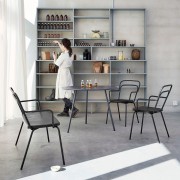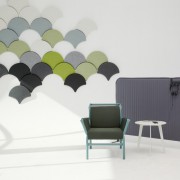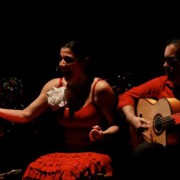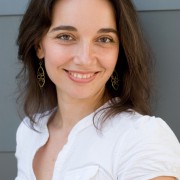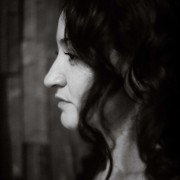To protect the interviewee’s safety and privacy, we are not using her real name. Instead, we will refer to her as “Sina”. This will be a series of interviews, covering multiple aspects of her life and career in Saudi Arabia.
I first met Sina in 2011 when she was working at International House, in Philadelphia. This former Fedex executive originally from San Francisco was embarking on a big life change, and it seemed that Philly was just a pit stop, on her way to something bigger. Two years later, I wasn’t surprised to receive a greeting, from Riyadh, Saudi Arabia. I was surprised that this gregarious and always smiling woman, was now living behind the veil, as she had embarked on a new career in teaching at a Saudi university.
SK: Let’s start with the most obvious question, what possessed you to apply for a job in such a drastically different culture?
Sina: For as long as I can remember I have never shied away from challenges. As an English Literature major at Cal State, Hayward, I was required to take two years of a foreign language before earning my BA degree. Taking Spanish would have been easy for me since I took classes in high school. But I thought “Nay….let’s take Japanese!” In the long run, it was not only fun, but a great decision that helped my career at FedEx.
Regarding teaching abroad, I was offered jobs in S. Korea and China, but I knew Asia wasn’t going any where so why not apply to a country few people can enter (especially single women), it is counter culture to my way of life, and a place known for not allowing women the freedoms most women around the world enjoy. Once again, a challenge was staring me in the face. I’ll take it! The past two years have been tough at times, but I’d do it all over to gain the same life experiences I’ve had.
SK: I am sure that culture shock was unavoidable in this situation. What were your first impressions of Riyadh, and your life on a compound?
Sina: I thought I wouldn’t see most western food for a long time. In fact, my mother made a point of making lots of bacon, I ate all my favorite foods (cheetos, Starbuck Frappucinos, etc…). But to my surprise, fast food and any junk food you could imagine is all right here! Leave it to capitalism to find another thriving market! In fact, obesity and diabetes has now become a problem in the Middle East.
On the outside, Riyadh looks like any other city, USA: American cars, fast food restaurants, shopping malls, tall, modern buildings (next to beautiful mosques and souks of course), freeways in the desert, etc….It’s the way they do business that is radically different than in America.
Everything shuts down for prayer time (5 times a day) and through out the year these times fluctuate. So you need to set your clock (or down load the My Prayer App and set it to Riyadh time) or you’ll find yourself standing in the grocery line with the clerk saying “Sorry, prayer time” and you’re standing there with a cart full of foods, some melting away! (And for up to 30 minutes too depending on the specific prayer.) It took me 6 months to finally get this down. But like anything else in my life, FedEx taught me how to respect time, and logistically work in a manner that would work in my favor.
My first compound, in all honesty was a dump! I couldn’t have been more disappointed. As I was walking to my villa, avoiding clothes lines, I thought to myself “I did not get a prestigious MBA to live like this!” The washing machine was one you had to fill with water from a hose. I could only take a shower either very early in the morning or late at night because the water tanks are outside in the sun. The water was simply too hot to use. And regarding the water, it is so chemically treated, my hair started to develop split ends from it, and being exposed to the hot sun. I had to cut my long beautiful hair. But not to worry. I eventually figured out how all these Saudi girls keep their hair so long and healthy. I now apply the same techniques they do (rinse in bottled water, wash as little as possible, and hot oil treatments on a regular bases.) The hair is back to normal (waist length). I now live in a beautiful western style compound.
My rent is high and I’m far from “the big city”, but it is worth the peace of mind. I feel normal in my little bubble. I can also socialize with anyone I like. In the first compound it was all women. I like women, but it was a bit too much estrogen for me. I work with them, ride the bus with them , teach them…halas, as they say here (finished)! I need to see and talk to some men!
SK: What was it like to put on an abaya for the very first time?
Sina: I thought I would hate wearing an abaya but I absolutely love it! I have 6 of them. I make them my own personal fashion statements. Most of them have some color. My “Hugh Hefner” abaya wraps like robe and has beautiful gold trim. I wear it to events in the evening. My “rebellious” abaya is all purple. Wearing them does take some getting used to. The sleeves are wide like a Japanese Kimono so you have to be careful when you’re eating. You also have to be mindful to not get stuck in the escalators, or car doors. Also, if I’m wearing a black abaya, I need to be remember that I am hard to see if I’m crossing the street at night. Because I am not Saudi or Muslim, I am not required to wear a Hijab (covering your hair) or Nicab (covering hair and face). I wouldn’t want to wear either of them. Although covering your face does have it’s benefits during sand storms.
SK: How would you describe educational opportunities for women in Saudi Arabia?
Sina: They have improved due to the late King Abdullah but there is so much more that can be done. KSA pays my students to attend university. Some of the students get it. They know without an education their options in life will be limited. If they work hard, get their degree, and stay focused they can achieve great things. Unfortunately, most of the young women see university as just a means to get out of the house, see their friends, and have some freedom! I don’t blame them. They are caged little song birds. If you’ve been told since the time you are small that a man will take care of you, make all your decisions (and if the father and brothers have treated them well) then why worry about life? They don’t understand what real freedom is.
The educational system here needs more classes that require greater critical thinking skills. Saudi Arabia was a society that relied heavily on memorization, and was known for relying on learning through oral teaching. Because of this, I find many of the students are lazy when it comes to reading, writing, and speaking. But that’s where the teacher comes in. I see it as my role to not only teach English but help them realize these other skills can be fun. I’m constantly looking for creative resources. The greater challenge is we are not permitted to discuss so many topics that it make my job difficult.
SK: What is the typical life story of a Saudi woman?
Sina: That depends on her family and tribe, specifically her father. I have found that the young women whose fathers have been educated in the West, and are more progressive minded, have greater freedom and better educations. The MBA students I tutor are very bright and worldly. I thoroughly enjoy teaching them. They’ve traveled the world and therefore have to know English.
Last NYE I was traveling to Bahrain and sat next to two young Saudi women. They struck up a conversation with me, as most do who want to practice their English. I couldn’t help but think that they were given a great deal of freedom to travel by themselves on a secular holiday, to Bahrain of all places (imagine Las Vegas, Middle Eastern style).
And for those young women who do not have forward thinking fathers….my heart bleeds for them. The young women at PNU make up a majority of these girls. A former PNU student confessed to one of my colleagues that the reason why a majority of the girls attend PNU is because their fathers make them in order to receive the monthly stipend (850SAR/mo, approximately $250/mo.). This money then goes to the family (which is usually very large, 7-13 children, with one wife!) And to ensure the young lady doesn’t become too smart or independent, they don’t give her a lot of time to study her subjects, and she eventually drops out or is let go for not passing her courses. The latter I know is true because too many times I’ve had young girls enter my classroom so exhausted from the events the night before they can barely stay awake. I asked one girl if her mother knew how late she stayed out. “Teacher, I was with her at the wedding”.
A vast majority of these young women have no common sense when it comes to finances or budgeting. If they’re allowed to keep their money, they waste it on food and clothes. Why save when you believe God will always take care of all your needs. I’ve tried to explain that God likes for us to depend on Him, but He also appreciates it when we use the talents He’s given us: investing, creating, etc. So, shopping, sleeping, some school work, spending time with family and more sleeping makes up the average day of a Saudi girl.
SK: You have mentioned in the past that you were frustrated by how women in your position were being treated. Can you give us some details?
Sina: I try not to generalize but if I’m going to be really honest women are not treated as equals or given as much respect as men. And if you’re a western woman sometimes it feels a little more one sided against you. If you are not completely covered like a Saudi woman, many assumptions are made about you: your morals are not as high, you’re not a Muslim, you want attention from men, and that you can be treated with disrespect (spoken to rudely, stared at, or pushed aside.)
What I have learned is when you stand up for yourself the men (and and sometimes women) quickly back down. This has taught me that any respect I get is earned and not automatically given to me because I’m a human. So I make it more of a point to always walk with confidence, not tolerating poor behavior, and even defend others if I see these rude behaviors demonstrated to them. Living here has taught me that I need to depend on other skills to ultimately get what I want (see my answer to another question below)
SK: Are you dating? What are romantic relationships like for foreigners living in Saudi Arabia?
Sina: I don’t recommend dating here for a few reasons: 1) Most ex-pat men are not to be trusted. They have families and girlfriends back home and are not honest with most single women here. If a woman knows about it, and she chooses to look the other way, that’s her prerogative. It’s just not for me. But most women here have no idea about the lives of the men they’re dating, so they need to be cautious. 2) Arab men generally want only one thing. (I doubt I need to spell it out.) Again if a western woman living in KSA only wants that in a relationship, who am I to judge. Just know you’ve been warned. 3) Dating, even mingling with the opposite sex is considered haram (bad) and legally forbidden! If you’re caught, you will get a written warning by the Mutawa (like I did for having ice cream in public with a man not my relation or husband. I pretty much cried my way out of the worst scenario) or you could be deported. 3) If the person you are dating is not Arab, but a Muslim, be prepared for a roller coaster relationship! I fell in love with a Turk. He was handsome and charming, but as the relationship developed it was obvious we couldn’t make it work. He was way too possessive, and controlling for me. Everything I did eventually drove him nuts because he couldn’t control me, or control other men from talking to me (which he would then place the blame on me!) We could not be more polar opposite. The only commonality was we were both faithful to our religions (I’m a Christian.) Turkish men are very handsome, but I have no desire to ever date another one. And I’m pretty confident I will be the last American my Turk will ever date!
SK: How has your experience in Riyadh changed you as a person?
Sina: Living in Saudi Arabia has made me mentally stronger and forced me to rely on other skills to get my way. I prefer using logic, and facts to make my case when I want something. Those skills are sometimes irrelevant here! “Wasta” (influence and power) and flirting many times are the attributes that help me get what I need. I’ve always been a person who is more interested in getting results, not necessarily being right.
SK: If one day, your daughter told you she was going to move to Saudi to teach, how would you react?
My first thought would be “chip off the old block” and then shake my head. I would make sure she had thought out all the pros and cons, examine why she really wants to go, and if I’m satisfied with her explanations, I would give her my blessing. I believe children belong to their parents only for a little while. It is the parents job to help them grow and develop into the person God wants them to be. I wish my mother had been more accepting of my ideas and circumstances. It would have created less tension along my path for both of us.
More about her life and thoughts at a later interview.














